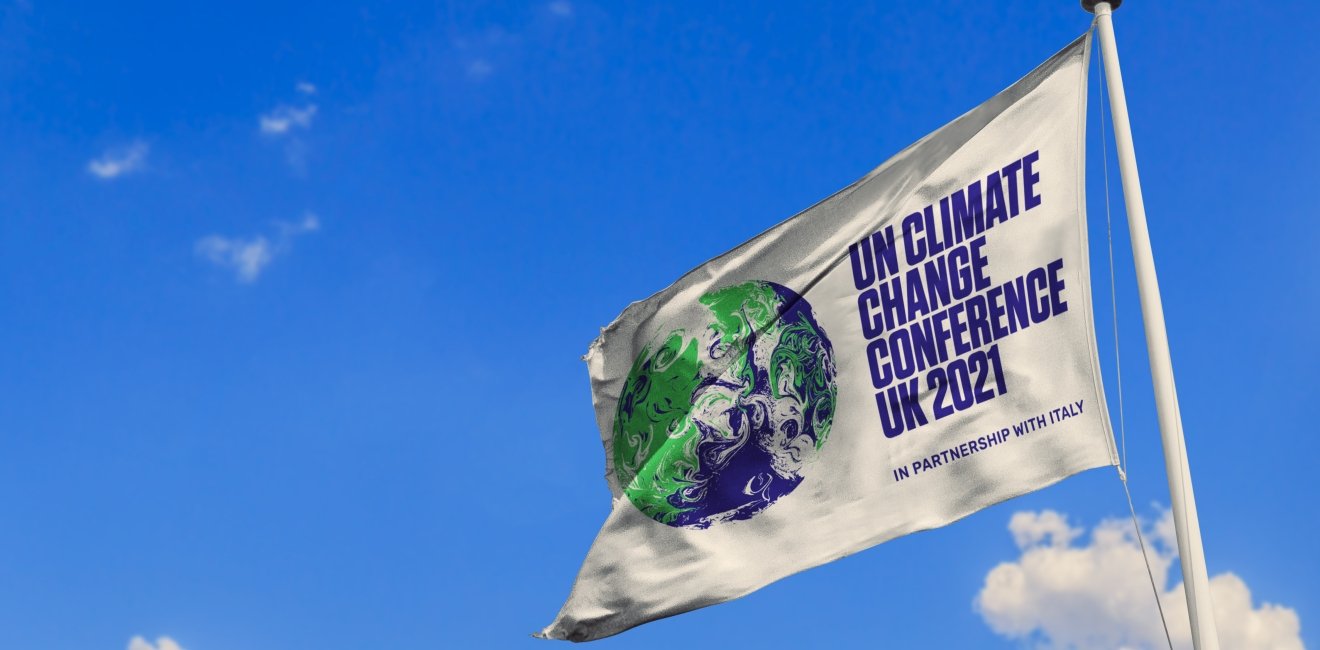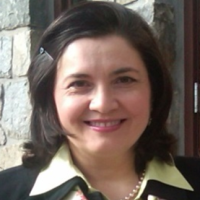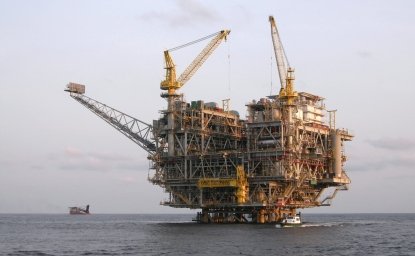Expert-Takes: The stakes for Europe at COP26
Fellows of the Global Europe Program chime in with their perspectives on the climate conference in Glasgow
Fellows of the Global Europe Program chime in with their perspectives on the climate conference in Glasgow

The European Union, so proud of its Green New Deal and promises to curtail carbon emissions, faces a looming energy crisis this winter that may unmask the hypocrisy of its pretensions. If anything, Europe is becoming dangerously dependent on fossil fuels despite its huge investments in alternative sources like wind and solar. Natural gas prices have jumped 400 percent since the summer and the completion of the Nord Stream II pipeline may endow Russia with even greater power to manipulate prices. Oil prices have also soared above $80 a barrel with no sign of increased production to alleviate the price surge. Meantime, Poland and Germany continue to churn out high levels of coal that make a mockery of Europe's commitments to clean energy.
The next challenge for Europe will be to decide what to do about nuclear energy. France, which gets 70 percent of its electricity from nuclear power stations, wants to emphasize nuclear's low carbon virtues and include nuclear power in the Green New Deal so that it can qualify for EU funding for new infrastructure projects in the post-pandemic era -- a view that is strongly backed by Europe's labor union. But Germany, Belgium and others are phasing out nuclear energy because of fears about dealing with radioactive waste, even though scientists predict that prolonging Europe's dependency on fossil fuels will cause far more early deaths than expanding nuclear power. With Germany's anti-nuclear Green party slated to play a key role in the next government, a showdown is building between advocates and opponents of nuclear energy that will threaten further divisions at a time when Europe is struggling with other conflicts over immigration, the future of European security and the primacy of European law in Poland and Hungary. No matter what kind of high-minded commitments emerge from the Glasgow conference, Europe faces a long, hard winter of grappling with choices that will affect the safety and security of future energy supplies.
“Put a price on carbon, nature cannot pay that price anymore,” so has insisted European Commission President Ursula von der Leyen when addressing more than 120 world leaders at the UN climate summit at Glasgow, COP26. Speaking for the 27 EU member states, President von der Leyen has reaffirmed the EU commitment to reduce emissions 55% by 2030 and to reach the target of the net zero carbon emissions by 2050.
However, getting to COP26 with a unified EU position has not been smooth, nor will the path to 2030 or 2050 be easy. The common climate policy has been a source of deep disagreements between Western and Eastern EU member states. Coal was an important source of energy back in 1950s, when six western democracies made a historic decision to pull together their resources in order to establish the European Coal and Steel Community, the early forerunner of the present-day European Union. Since then, Western states have gradually abandoned coal, for the most part switching to cleaner energy sources. Meanwhile, the new member states in the East still rely on coal, even though they have made important advances towards cleaner growth by moving away, in most cases, from the polluting communist-era heavy industries.
Led by Poland, which still relies on coal and fossil fuels, Eastern states opposed, in 2019, the proposed EU targets for clean energy because they wished to avoid the pains of job losses and economic restructuring. Furthermore, Eastern governments were under no particular pressure to take action to reduce carbon emissions because their citizens are less concerned about climate change, as opposed to the strong public pressure on governments in the EU’s Western, Southern, and Northern members. Moreover, trade unions warned that the agreement on carbon neutrality would deepen the intra-European differences and increase migration towards Western states as jobs and livelihoods got lost in the East. Thus, it took almost a year for the EU to overcome the internal opposition and for the EU member states to agree finally on the European Green Deal and the EU Just Transition Fund to help the economies transitioning from coal to clean energies. Still, not all member states seem fully on board with the EU targets. Hence, when the COP26 participants recently agreed to phase out coal, by 2040 for the major economies, and by 2050 for the rest of the world, Poland clarified that it would not meet the target before 2049.
Despite the climate change urgency, the path forward will be difficult for the EU, and climate action will likely exacerbate current EU disagreements over the rule of law and the refugee policies.
Climate action is of particular importance to the Arctic; a region that has warmed three times as fast as the planet on average during the last 50 years; a region that is extremely vulnerable to both infectious diseases and natural disasters. The Arctic is ground zero for climate change with Arctic sea-ice decline being the most prominent manifestations of related change.
Complex Arctic changes also have ripple effects on the European Union, be it through rising sea levels, coastal flooding, or changing weather patterns. The EU, in turn, has profound impact on what happens in the Arctic. The most effective way to mitigate disruptive changes, not only but essentially also from a European perspective, is to reduce greenhouse gas emissions, as GHG emissions schemes, internal climate policies and goals, and market mechanisms all impact the Arctic’s environmental security.
COP26 has further clarified the ways the EU continues to influence the Arctic, either via its demand for regional resources, its environmental footprint or the Union’s supporting role in generating knowledge, solutions and cooperative frameworks that are supposed to address a variety of challenges troubling the circumpolar North. As such, COP26 has also re-identified several Arctic knowledge and research gaps, particularly concerning the lack of all-year-long Arctic sea-ice research that calls for continuous EU research funding.
COP26 has also made clear that only the successful implementation of European Green Deal (EGD) policies could significantly affect the various pollutants reaching the Arctic from Europe. While the EGD does not discuss the Arctic at all, it has a distinct Arctic agenda. With key elements of the EGD focusing on reducing Europe’s overall CO2 emissions, it is clear that part of the EU’s response to Arctic challenges is actually the EGD. As the EU takes more of a leadership role in climate change discussions, it may be able to also encourage just transition policies implemented under EGD efforts. When challenges are manifold – ranging from the environmental to the human dimension – we need policy reforms to set ambitious goals, bring actors together, create frameworks on how to share investments and reap the benefits.
The EU’s position before the COP26 climate conference in Glasgow emphasized the extreme urgency to step up the global response to address the climate emergency and underlined the need for a just and fair climate transition across the world. Ahead of the summit, the European Commission set three objectives: (i) Get commitments to cut emissions during this decade, to keep within reach the goal to limit global warming to 1.5 degrees; (ii) Reach the target of 100 billion dollars per year of climate finance to developing and vulnerable countries; (iii) Get agreement on the Paris rulebook.
Ending coal use is critical to fulfilling the goal of the Paris Agreement, which is to prevent the world’s average temperature from rising 1.5 degrees. Therefore, one of the EU’s goals during COP26 was to convince countries to phase out coal. The Europeans were disappointed that Chinese President Xi Jinping did not attend the COP26 conference. China is the world’s top consumer and producer of coal and it has continued to build coal-fired power plants domestically, contributing three-fourths of all new coal power in 2020. Moreover, the Chinese delegation in Glasgow - along with India - watered down the language of the final text on coal.
Good news came, however, on 10 November, when the United States and China made a joint declaration on climate cooperation, though it was quite light on details. The challenge now for the EU is to do something similar with China – after all, Sino-European cooperation on climate change is one of the few issues that has survived the recent setback in relations following the imposition of sanctions by Beijing on European individuals and organizations in March 2021. During the Trump era, climate change was one of the key issues fleshed out in the final communiques of the EU-China Summits, clearly signaling the disappointment of Brussels and Beijing about Trump’s stance on environmental issues.
Besides reaching out to China, the EU should step up its climate cooperation with the United States –which has been easier with the arrival of Joe Biden in the White House. Following the U.S.-China joint declaration on climate cooperation issued on the margins of COP26, the EU should now seek to bring all three actors – the United States, the EU and China – to the table to move ahead in the implementation of the Paris Agreement.





The Global Europe Program is focused on Europe’s capabilities, and how it engages on critical global issues. We investigate European approaches to critical global issues. We examine Europe’s relations with Russia and Eurasia, China and the Indo-Pacific, the Middle East and Africa. Our initiatives include “Ukraine in Europe”—an examination of what it will take to make Ukraine’s European future a reality. But we also examine the role of NATO, the European Union and the OSCE, Europe’s energy security, transatlantic trade disputes, and challenges to democracy. The Global Europe Program’s staff, scholars-in-residence, and Global Fellows participate in seminars, policy study groups, and international conferences to provide analytical recommendations to policy makers and the media. Read more



